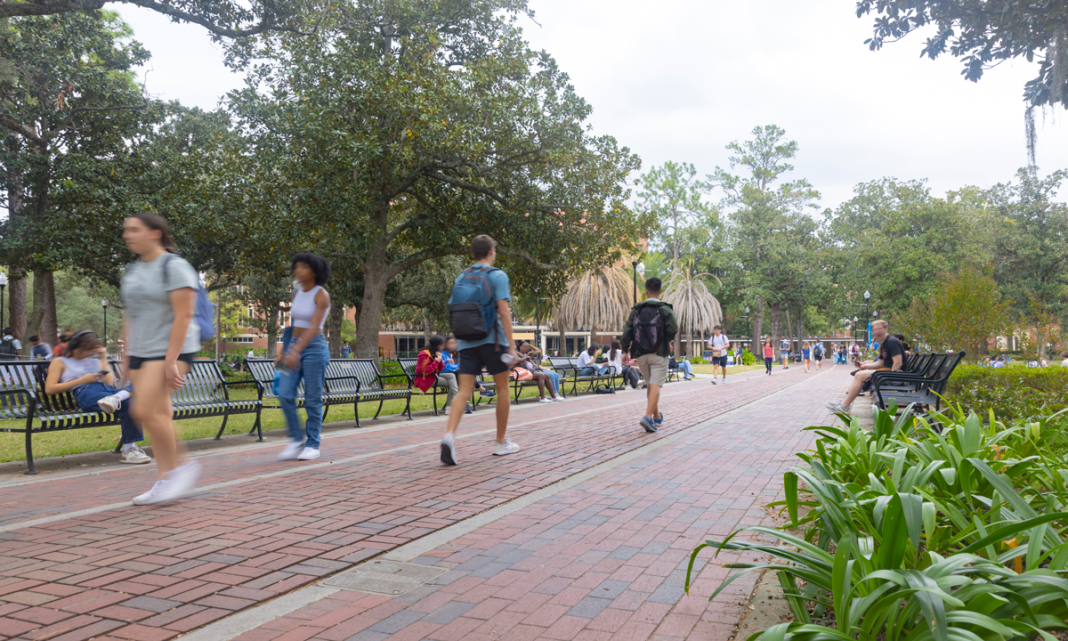Such is the level of political polarization in the nation that it’s now influencing where students want to attend college. A study by Riley Acton at Miami University, Emily Cook at Texas A&M University, and Paola Ugalde Araya at Louisiana State University finds that students are willing to pay thousands of dollars more in tuition to avoid classmates with opposing political views, contributing to a growing ideological divide on campus.
The researchers analyzed four decades of data on 7 million first-year college students and found that, since the 1980s, political polarization on college campuses has grown. Schools that traditionally enrolled more liberal students have become even more liberal, while conservative-leaning colleges have become more conservative. These shifts cannot be fully explained by changes in student demographics, academic readiness or state-level political trends, suggesting that enrollment choices and political self-sorting are playing a role.
Get stories like this delivered straight to your inbox. Sign up for The 74 Newsletter
To better understand how ideology shapes enrollment, the researchers surveyed 1,028 undergraduates, presenting them with hypothetical colleges that varied in cost, type, location and political leanings of both the schools’ student bodies and the states in which they’re located. Using this experimental design, Acton, Cook and Araya found a strong willingness to pay for political alignment.
Liberal students were willing to pay $2,617 more to attend a college with fewer conservative classmates, $1,162 more for campuses with more liberal peers and $3,064 more to attend a college in a state with a higher share of Democratic voters.
Conservative students were willing to pay $2,201 more to avoid liberal classmates and $2,720 more for colleges in states with fewer Democratic voters. But conservatives did not show a statistically significant preference for attending schools with more conservative students. Moderates, meanwhile, showed little political preference, though they tended to favor colleges in Democratic-leaning states.
The research says these results suggest that students are increasingly uncomfortable with political differences on campus. Assuming that survey participants’ stated preferences reflect real-world decision-making, political identity appears to influence college enrollment choices alongside academic and financial considerations — a development with consequences not just for higher education, but for the nation more broadly.
As the authors note, decreased political diversity on college campuses limits opportunities for students to engage with and be challenged by different perspectives. Exposure to diverse viewpoints has long been considered a core component of the college experience, helping students sharpen their reasoning skills, question assumptions and develop empathy. A more homogenous campus, by contrast, risks reinforcing echo chambers and discouraging the kind of debate upon which democratic societies depend. The Trump administration has criticized colleges for diminishing conservative voices, but as the new study suggests, homogeneity on campus doesn’t run in a single direction.
Political self-sorting may also reinforce geographic and demographic divides. Political identity is correlated with factors such as race, income and whether students come from urban or rural areas, and these patterns could deepen the divides that already shape where Americans live and learn. And since college experiences strongly influence students’ long-term civic engagement, social networks and political identities, such self-sorting could further entrench polarization.
“If colleges seek to ensure that students interact with others with opposing views,” the authors write, “our findings imply that they will need to actively work to attract a politically diverse pool of applicants and enrollees.” That is no easy task. As colleges face declining enrollment and intensifying political scrutiny, deliberate steps toward ideological diversity will require both resources — including outreach and recruitment efforts and scholarships — and political resolve. Efforts to promote free expression or diversity of viewpoints are often cast as political statements themselves, and recent federal restrictions on diversity, equity and inclusion programs have made universities more cautious about launching initiatives that touch on identity or representation.
But if colleges are to remain places for open inquiry and civic preparation, campus leaders may need to make a more concerted effort to foster political diversity just as they do with racial, socioeconomic and other forms of representation. Otherwise, the sorting in higher education may further reinforce the social and political divides currently shaping the country.

